 We're all about the history of rock & roll at BoomtownAmerica.com!
We're all about the history of rock & roll at BoomtownAmerica.com!
Every week, we present “ROCK REMEMBERED,” a deep dive into the hidden history of rock & roll, the stories behind the artists and songs that changed the world. Join host, “Boomtown Bill” Cross each Wednesday at 7 pm (Eastern) with an encore broadcast on Saturday at noon (Eastern).
Join us this Saturday as we introduce you to some "Famous Songs Inspired by Famous People!"

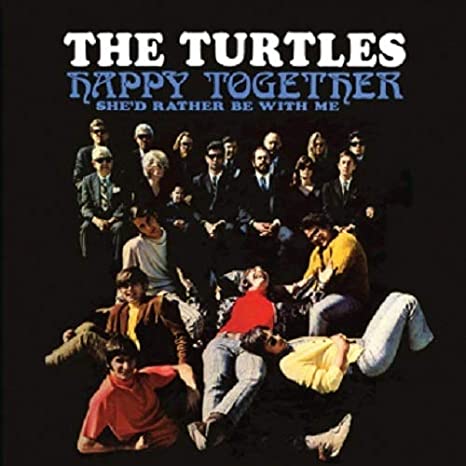
With rare exception, most rock bands of the 1960s came out of nowhere, burned brightly for a year or two, and then faded away. The Turtles fit the first two parts of that formula, but they have stubbornly refused to fade away.
The band was born in the surf music craze of the early 1960s. A bunch of students at Westchester High in Los Angeles put together a little combo in 1963 that went by the name of the Crossfires. Unlike most high school rock bands, they actually continued to play together even after their members moved on to college.
By 1965, folk rock had definitely replaced surf music, so taking a page from the Byrds, the band renamed itself, the Tyrtles. The problem was most people had trouble pronouncing that name correctly, so the band settled on the conventional spelling, and the Turtles were on their way.
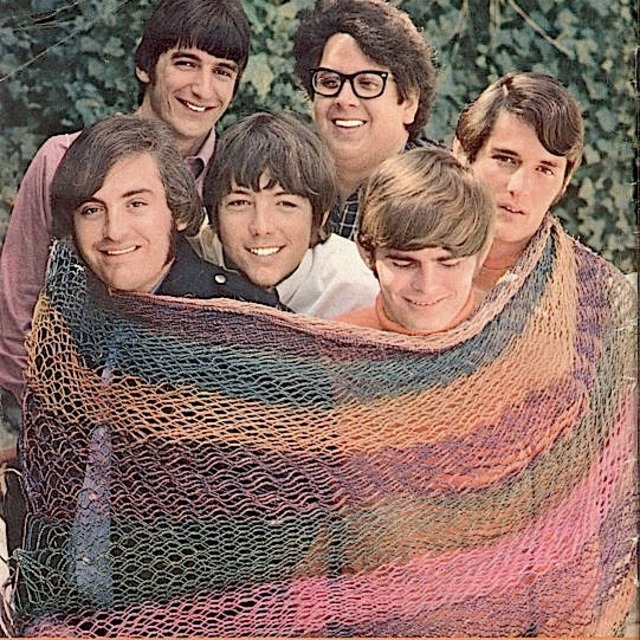 They signed with the tiny White Whale Records and found their first success (like the Byrds) in covering a Bob Dylan tune, “It Ain’t Me Babe.” Between 1965 and 1969, they placed 9 singles in the Top 40, with 5 reaching the Top 10. Their biggest hit was their only #1, “Happy Together,” and it became their signature tune.
They signed with the tiny White Whale Records and found their first success (like the Byrds) in covering a Bob Dylan tune, “It Ain’t Me Babe.” Between 1965 and 1969, they placed 9 singles in the Top 40, with 5 reaching the Top 10. Their biggest hit was their only #1, “Happy Together,” and it became their signature tune.
Despite all their achievements on the singles charts, the band could not sell albums. Only the LP containing the aforementioned “Happy Together” and their first Greatest Hits package even charted. By 1969, the band was fighting with their record label and fighting with each other, so they packed it in.
But that was not the last we would hear of the band. The group's two singers, Howard Kaylan and Mark Volman, stayed together and, along with Turtles’ bass player, Jim Pons, joined Frank Zappa, resulting in the most commercially successful version of the Mothers of Invention. In fact, the Mothers’ live act during that time would culminate with the band actually playing “Happy Together,” always bringing down the house!
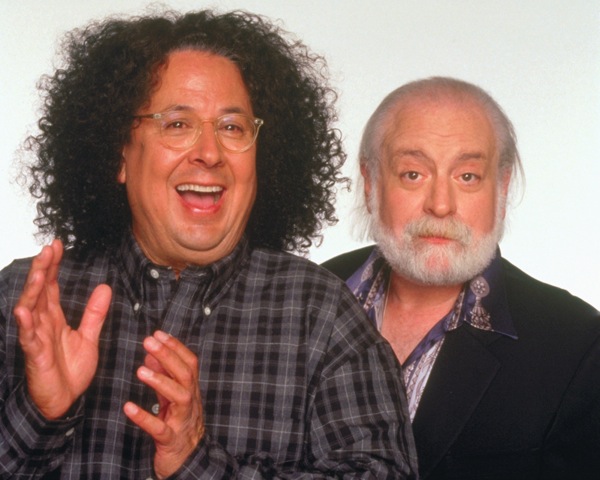 Kaylan & Volman became better known as Flo & Eddie. They hosted several nationally syndicated radio shows and found steady work as session players (singing back up on Bruce Springsteen’s “Hungry Heart” and several of Alice Cooper’s tracks, among others). Along the way, the duo also bought the rights to the Turtles' original recordings and has done an excellent job of keeping the band’s catalog in print.
Kaylan & Volman became better known as Flo & Eddie. They hosted several nationally syndicated radio shows and found steady work as session players (singing back up on Bruce Springsteen’s “Hungry Heart” and several of Alice Cooper’s tracks, among others). Along the way, the duo also bought the rights to the Turtles' original recordings and has done an excellent job of keeping the band’s catalog in print.
Starting in 2010, Flo & Eddie formed a new version of the Turtles and took to touring the oldies circuit. Unfortunately, Kaylan has passed away, but Volman continues with well-known session singer Ron Dante (“Sugar, Sugar,” “Traces,” “Leader of the Laundermat”) stepping in to keep the Turtles performing into their 7th decade.
 We all know modern society is more disconnected than the world we grew up in. That is especially true as we age.
We all know modern society is more disconnected than the world we grew up in. That is especially true as we age.
Isolation is different than simple loneliness. Isolation means emotional and physical disconnection with friends and family members, and researchers say it affects more than 8 million Americans over the age of 50.
Prolonged isolation can contribute to poor health. A recent study suggests it's as bad as smoking 15 cigarettes!
To find out your risk of isolation, AARP has posted a quiz online on its website. If you'd like to take the quiz, click here.
The very first “rock & roll” film is also one of the best. Rock Around the Clock was rushed into production to capitalize on the success of its title song. That song had been released by Bill Haley & His Comets in 1954 to almost total apathy. It was forgotten until it became the song that played behind the opening credits of the definitive film about 1950s’ juvenile delinquency, Blackboard Jungle, in 1955. Overnight, rock & roll went from a small following of teenagers in a few cities to a nationwide phenomenon.
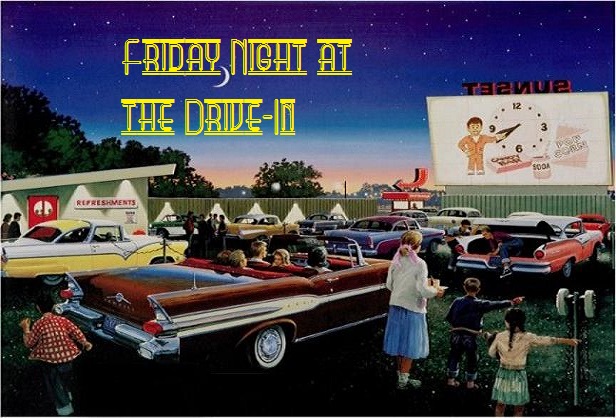 Columbia Pictures, always one of Hollywood’s lesser studios, decided to jump on the craze and quickly threw together a film that would showcase the music industry’s newest stars. The film was shot in one month (January, 1956) and rushed into theaters in March. Apparently, the studio was taking no chances that the “fad” for rock would die before they got to make some money off of it.
Columbia Pictures, always one of Hollywood’s lesser studios, decided to jump on the craze and quickly threw together a film that would showcase the music industry’s newest stars. The film was shot in one month (January, 1956) and rushed into theaters in March. Apparently, the studio was taking no chances that the “fad” for rock would die before they got to make some money off of it.
In addition to Haley, the film also featured the Platters (performing what turned out to be their two biggest hits, “Only You” and “The Great Pretender) and a never-was rock ensemble that billed themselves as Freddie Bell and His Bellboys for the kids. The also included an act aimed at a little older demographic, Tony Martinez and His Band.
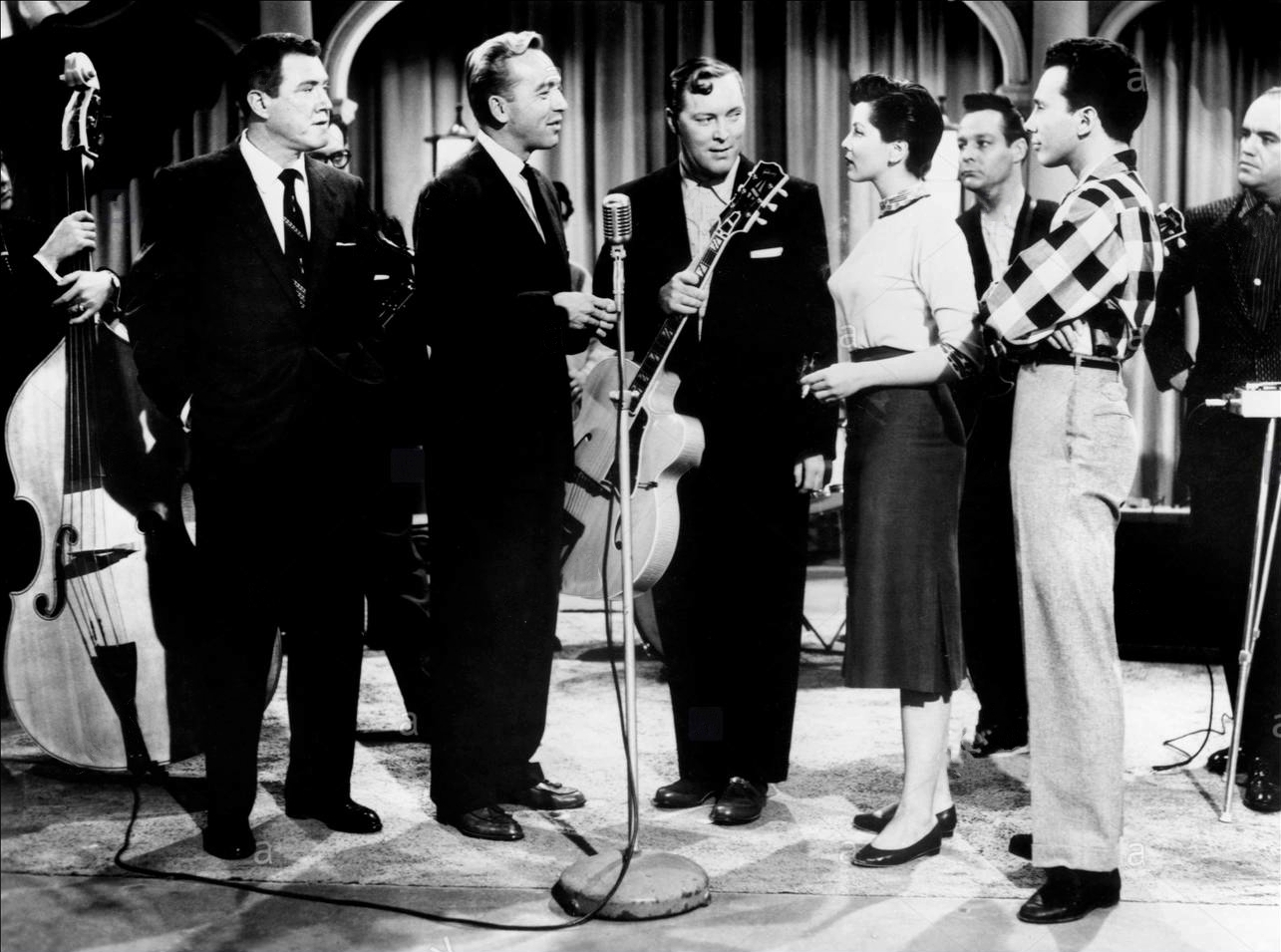
The plot (or what passes for a plot) involves band manager Steve Hollis (Johnny Johnston), tiring of big bands, stumbling on Haley and his Comets in a little backwater town. Convinced rock is going to be the next big thing, he signs the band and two local dancers, a brother and sister. The only snag is that all the bookings for the big nightclubs are controlled by a scheming booking agent named Corrine Talbot (Alix Talton). She won’t book the Comets until she can get Hollis to agree to marry her. Hollis only has eyes for Lisa Johns (Linda Gayle), the sister half of the jitterbugging couple who dance while Haley plays.
Unlike many of the rock & roll exploitation films that came later, Rock Around the Clock actually has some decent production values and Gayle & Johnston are talented enough performers to keep you somewhat interested in the plot.
The film features 9 songs by Haley and his band, including “See You Later Alligator, which was recorded and released only a month before the movie.
 It’s worth a watch if only because the initial jitterbug sock hop at which Haley’s group is discovered appears to have been one of the inspirations for the high school dance scene in Grease.
It’s worth a watch if only because the initial jitterbug sock hop at which Haley’s group is discovered appears to have been one of the inspirations for the high school dance scene in Grease.
A couple of interesting tidbits about Rock Around the Clock:
- Haley’s song was used as the opening song for two movies in less than a year. It would be used again, many years later, to open George Lucas’ American Graffiti and the first season of the TV series Happy Days.
- The film was a fairly big hit, touching off a craze for rock & roll films and leading to a less-successful sequel, Don’t Knock the Rock.
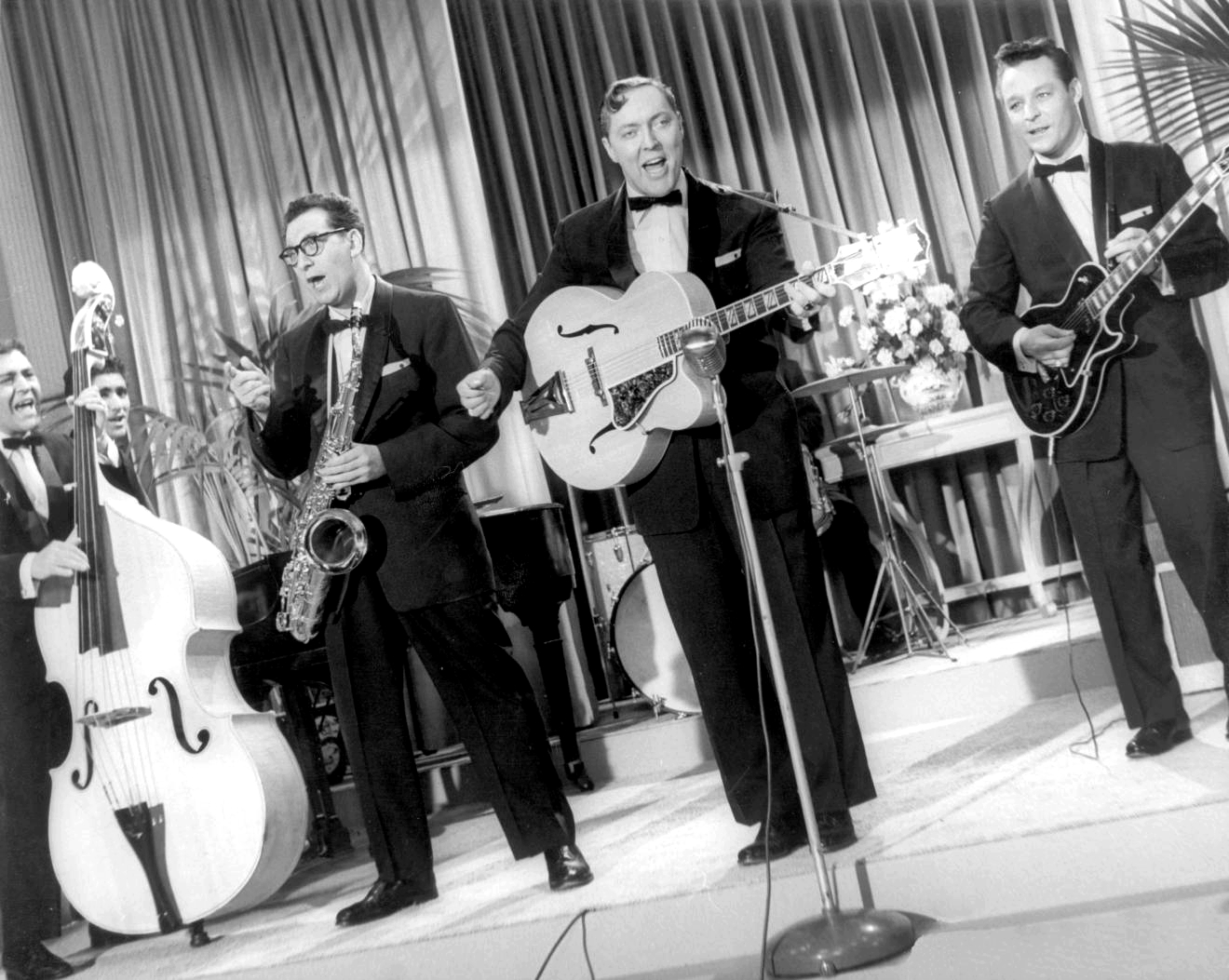
• It would be remade only a few years later as Twist Around the Clock with Chubby Checker (as well as a remake sequel, Don’t Knock the Twist).
• Something most audiences were not used to at that time, white, black and Hispanic acts perform at the same venues in the film – and in the finale, perform together – signaling the beginning of a shift in popular conceptions about race relations.
• Johnny Johnston’s career never really took off. His last major gig was hosting the 1962 nighttime sports game show, Make That Spare. for ABC.
• Curiously, a soundtrack album for this movie has never been released in the U.S.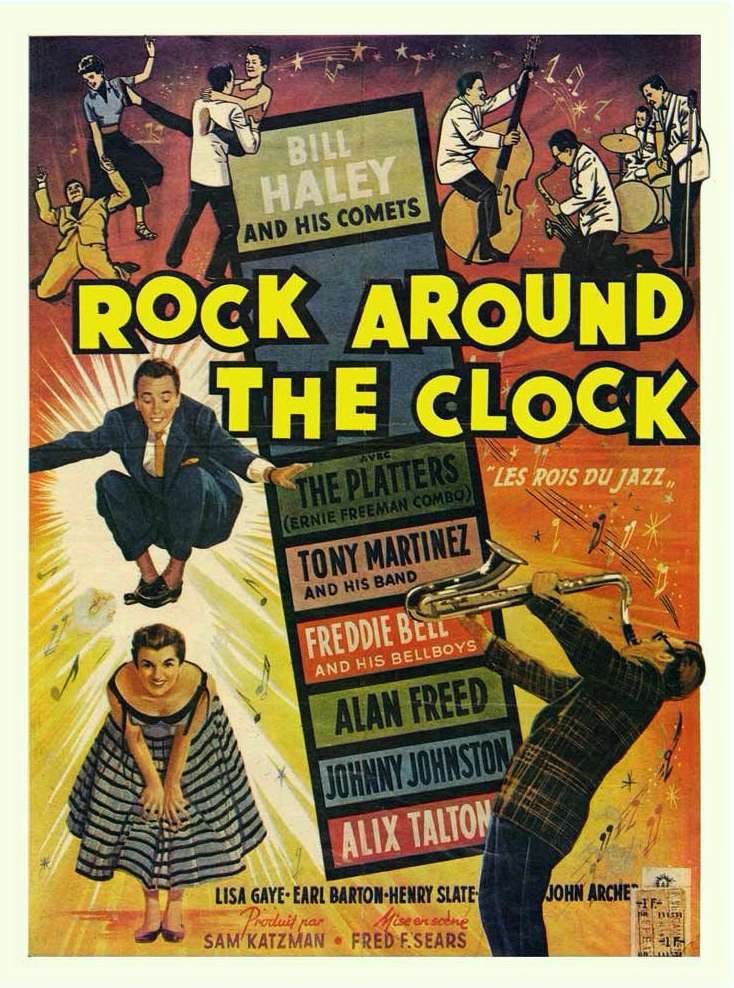
Somehow I doubt you'd still find these at Woolworth's. As a matter of fact, it's probably pretty difficult to even find a Woolworth's these days.
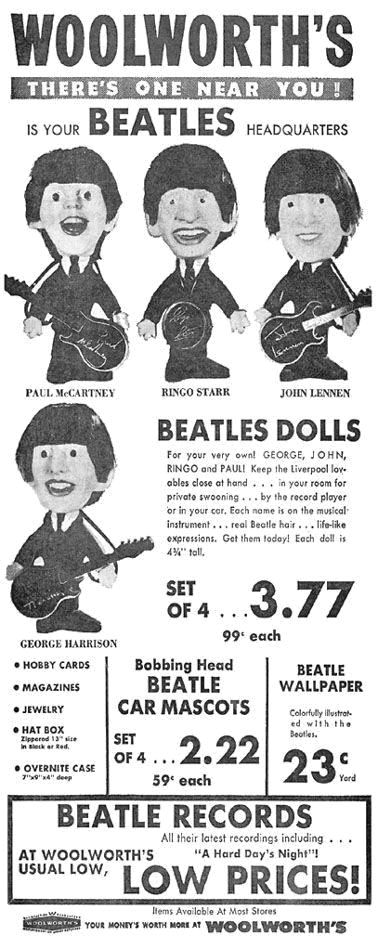

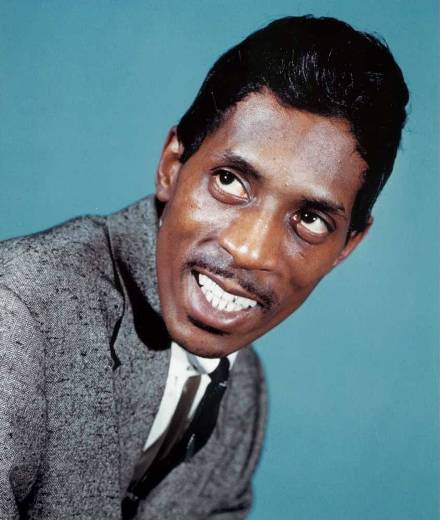 1951: Ever think that Ike Turner just may have invented rock & roll? It was on this day that Ike and his band, recording under the name Jackie Brenston and His Kings of Rhythm, recorded “Rocket 88” for Sam Phillips at his Memphis Recording Service (the same place Sam would name Sun Studios a few year later).
1951: Ever think that Ike Turner just may have invented rock & roll? It was on this day that Ike and his band, recording under the name Jackie Brenston and His Kings of Rhythm, recorded “Rocket 88” for Sam Phillips at his Memphis Recording Service (the same place Sam would name Sun Studios a few year later).